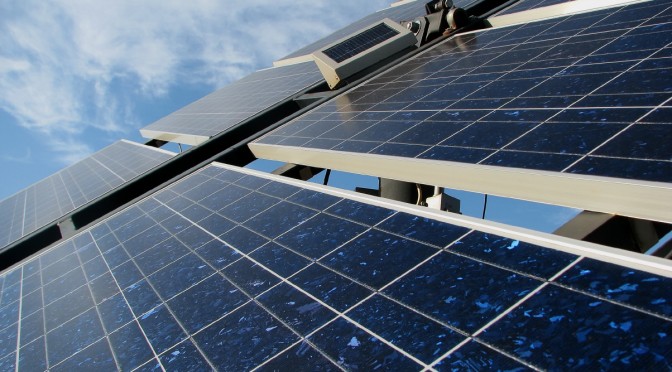In a move that could have international implications for the global soar energy market, the U.S. Department of Commerce ruled on trade tariffs for Chinese solar photovoltaic manufacturers.
U.S.-based PV manufacturers initiated the case against what they called “dumping,” or flooding the American market with artificially cheap Chinese solar powerproducts that undercut American manufacturers.
If this happens, the solar energy industry is likely to see significant changes in the supply of photovoltaic panels and other such products.
Dumping occurs when a foreign company sells a product in the U.S. at less than its fair value. Countervailable subsidies are financial assistance from foreign governments that benefit the production of goods by foreign companies.
The U.S. Department of Commerce (Commerce) is upholding tariffs it proposed earlier this year on imports of Chinese crystalline silicon photovoltaic (PV) cells and panels.
The decision is the agency’s final determination in an investigation of dumping and inappropriate subsidies by Chinese PV cell and module manufacturers.
Commerce found dumping margins ranging from 18.32% to 249.96% and countervailable subsidies ranging from 14.78% to 15.97%.
This will affect solar energy developers who import Chinese solar products because their market prices will likely reflect the tariffs. It will also affect U.S. manufacturers of solar cells because it may help them to better compete with imported solar products.
In its final determination, Commerce found dumping margins of 31.73% for PV cells made by Suntech, 18.32% for Trina Solar, 25.96% for Chinese firms that requested but had not received individual duty determinations, and 249.96% for all other Chinese PV producers. Commerce found countervailable subsidies of at 14.78% for Suntech, 15.97% for Trina Solar, and 15.24% for all other Chinese manufacturers.
Commerce affirmed that the scope of the investigation included crystalline silicon PV cells, and modules, laminates, and panels consisting thereof, either partially or fully assembled into other products. Commerce also affirmed that the investigation covered modules, laminates, and panels produced in a third country from cells produced in China. Modules, laminates, and panels produced in China from cells produced in a third country, however, are not covered.
Further, Commerce affirmed the finding of critical circumstances, which allows retroactive tariffs on imports going back to December 2011 for countervailing duties and February 2012 for anti-dumping duties. Commerce found no critical circumstances for Suntech, however, concerning dumping duties. Critical circumstances exist when a major spike in imports occurs ahead of the possible imposition of duties, necessitating retroactivity.
The International Trade Commission (ITC) must also make its final determination in this case before Commerce’s determinations become effective. ITC’s determination is expected in November. Assuming an ITC affirmative vote, final duties will then be calculated.
This decision has broad implications for international trade, renewable energy, and U.S. manufacturing. Recently, the Obama administration has become increasingly critical of Chinese trade practices.
Commerce is also investigating wind turbine towers and other products from China and is expected to launch new investigations into Chinese hardwood and plywood products. The European Union is also investigating whether to impose duties on Chinese solar panel imports. China has struck back by launching an investigation into imports of solar-grade polysilicon from the U.S.
Commerce’s determinations come at a time of increased trade tensions between the two countries and in an apparent escalation of trade confrontation in the shadow of a presidential election. This case continues to be worthy of the industry’s close attention.






